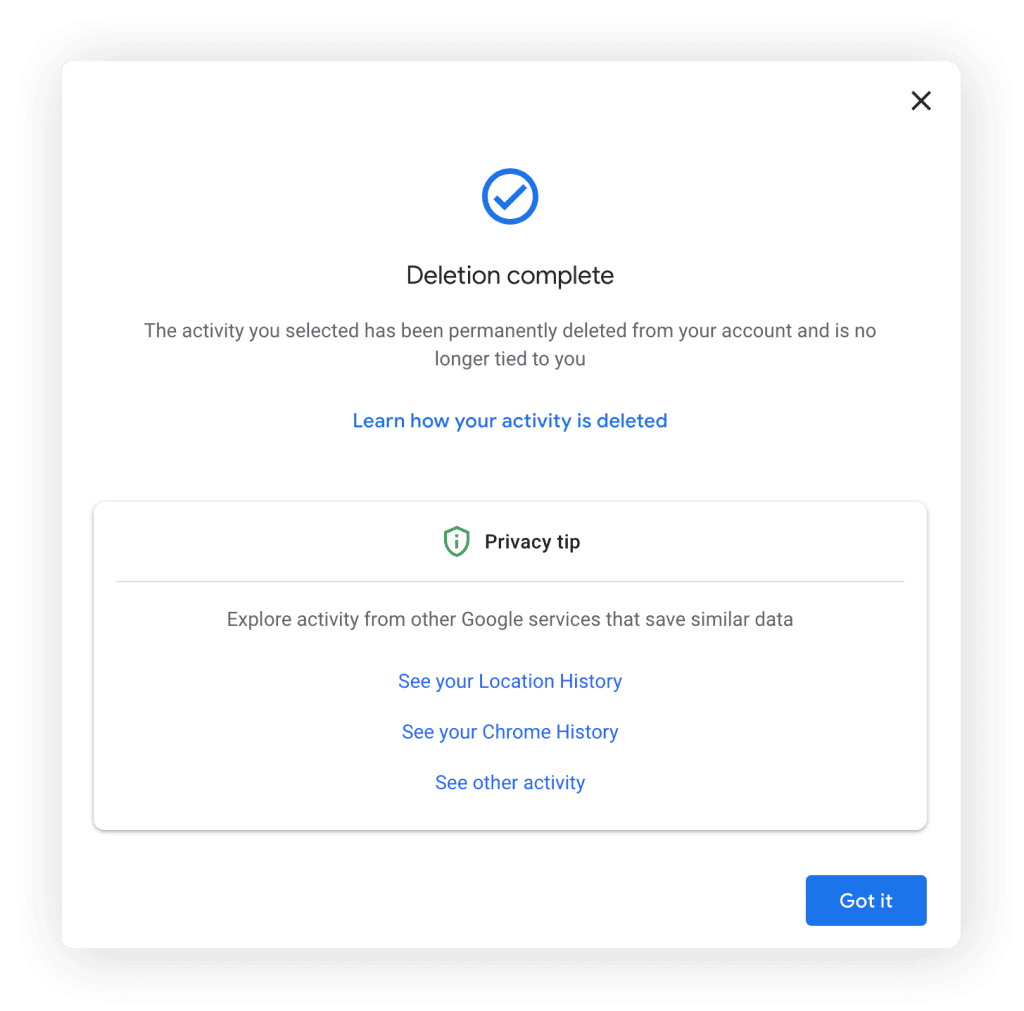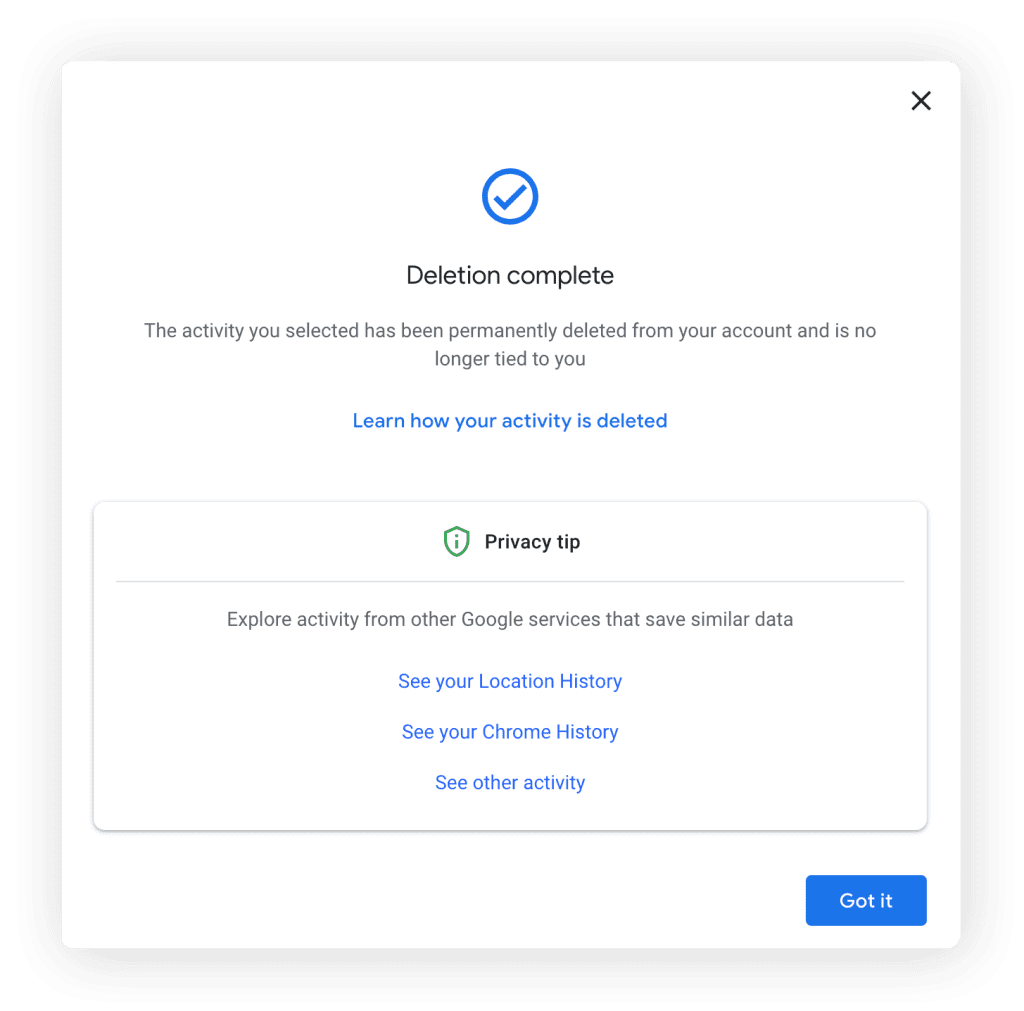In today’s digital age, online privacy has become a crucial concern for everyone. With the vast amount of personal information that we share online, it has become essential to take necessary measures to protect our privacy. One of the most effective ways to do so is by clearing our search history.
Clearing your search history means deleting the record of your online activity, including the websites you visited, the searches you made, and the videos you watched. This is important because it helps prevent others from accessing your personal information. When you clear your search history, you are essentially wiping out any traces of your online activity, making it harder for hackers, cybercriminals, or even your ISP to track your online behavior. So, if you want to protect your online privacy, clearing your search history is a must.. You may need to know : Clear Your Tracks: A Step-by-Step Guide to Deleting Google Search History on Android
As the internet continues to play a vital role in our daily lives, it is important to be aware of the digital footprint we leave behind. Search history is one such aspect that can reveal a lot about our online behavior, making it crucial to clear it regularly. In this blog post, we will explore what search history is, the risks of not clearing it, how to clear it, and other ways to protect our online privacy.
Table of Contents
What is Search History?
Search history is a record of the websites and keywords that we have searched for on a search engine. It is stored in the browser’s cache and can be accessed by anyone who has access to our device. Search history can reveal our interests, preferences, and even personal information such as names and addresses.
Risks of Not Clearing Search History
Tracking and Profiling by Advertisers
One of the biggest risks of not clearing search history is that it can be used by advertisers to track and profile us. Advertisers use this information to create targeted ads that are more likely to appeal to us, thereby increasing the chances of us clicking on them. This can be intrusive and can compromise our privacy.
Risk of Identity Theft
Search history can also reveal sensitive information such as credit card details and login credentials. If this information falls into the wrong hands, it can lead to identity theft and financial loss.
Legal Implications
In some countries, search history can be used as evidence in legal proceedings. This means that if we engage in any illegal activity online, our search history can be used against us in a court of law.
How to Clear Search History
Clearing search history is a simple process that can be done in a few easy steps. Here’s how to clear search history on popular browsers:
Google Chrome
1. Click on the three dots in the top right corner of the browser window.
2. Click on “History” and then “History” again.
3. Click on “Clear browsing data”.
4. Select the time range for which you want to clear the data.
5. Select “Browsing history” and any other data that you want to clear.
6. Click on “Clear data”.
Mozilla Firefox
1. Click on the three lines in the top right corner of the browser window.
2. Click on “Library” and then “History”.
3. Click on “Clear Recent History”.
4. Select the time range for which you want to clear the data.
5. Select “Browsing & Download History” and any other data that you want to clear.
6. Click on “Clear Now”.
Microsoft Edge
1. Click on the three dots in the top right corner of the browser window.
2. Click on “History” and then “Clear browsing data”.
3. Select the time range for which you want to clear the data.
4. Select “Browsing history” and any other data that you want to clear.
5. Click on “Clear now”.
It is important to clear search history frequently to ensure maximum privacy.
Other Ways to Protect Online Privacy
Apart from clearing search history, there are other ways to protect our online privacy. Here are a few tips:
Use of VPNs and Private Browsing
Using a Virtual Private Network (VPN) can help to mask our IP address and encrypt our internet connection, thereby making it difficult for third parties to track our online activity. Private browsing mode can also be used to prevent the browser from storing any data.
Limiting Personal Information Shared Online
It is important to be mindful of the personal information that we share online. This includes not sharing sensitive information such as passwords and login credentials, as well as being cautious of the information we share on social media platforms.
Conclusion
Clearing search history is crucial for protecting our online privacy. It can help to prevent tracking and profiling by advertisers, reduce the risk of identity theft, and avoid any legal implications. In addition to clearing search history, using VPNs and private browsing and limiting personal information shared online can also go a long way in protecting our privacy. As we continue to navigate the digital world, it is important to be aware of the risks and take proactive measures to safeguard our online privacy.
Frequently Asked Questions
Search history can reveal a lot about our interests, habits, and even our location. If this information falls into the wrong hands, it can be used to track our movements, target us with ads, or even steal our identity. Clearing our search history regularly can help prevent this from happening.
How does clearing your search history protect your personal information?
When we clear our search history, we remove any record of our online activity from our device. This means that anyone who gains access to our device won’t be able to see what we’ve been searching for. It also means that our search history won’t be used to personalize ads or recommendations based on our previous activity.
What are the potential risks of not clearing your search history on different devices?
If we don’t clear our search history, anyone who gains access to our device can see our search activity. This could include family members, friends, or even strangers if our device is lost or stolen. Additionally, search history can be used to track our location and build a profile of our interests and habits, which can be sold to advertisers or used for nefarious purposes.
Conclusion
Thanks for visits imagerocket.net for taking the time to read this article on why clearing your search history is crucial for online privacy. In today’s digital age, our online activity is constantly being tracked and monitored by various entities, including advertisers, government agencies, and hackers. While some may argue that there is nothing to hide, the truth is that our personal information can be used against us in ways we never imagined.
Clearing your search history is a simple and effective way to protect your online privacy. By doing so, you limit the amount of information that can be accessed about you by third parties. This not only protects your personal information, but it also ensures that you have control over your online identity.
In addition, clearing your search history can also improve the performance of your device by freeing up storage space and reducing the amount of data that needs to be processed. It can also help to prevent embarrassing or compromising search results from popping up in the future.
Overall, the benefits of clearing your search history far outweigh the inconvenience of having to do so. It is a small but important step towards safeguarding your online privacy and taking control of your digital footprint. So, next time you browse the web, remember to clear your search history and protect your personal information.



